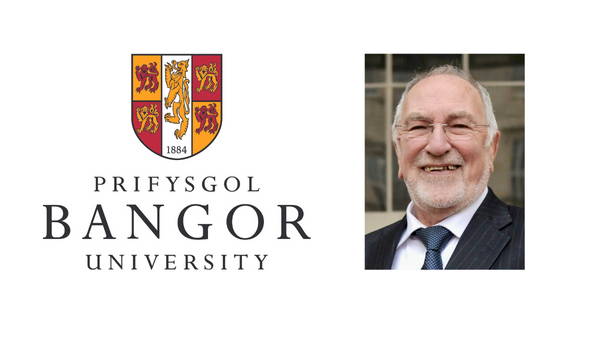Germany's Role In Europe: Can The New Chancellor Reclaim Influence?

Table of Contents
Historical Context: Germany's Post-War European Influence
Germany's post-war transformation is a remarkable story of reconciliation and integration. From a nation ravaged by war and burdened by its past, it emerged as a cornerstone of the European Union. This remarkable journey began with its participation in the European Coal and Steel Community (ECSC) in 1951, a crucial step towards fostering economic cooperation and preventing future conflicts. The Treaty of Rome in 1957 cemented Germany's commitment to European integration, setting the stage for the creation of the European Economic Community (EEC) and, ultimately, the European Union.
Germany's economic might has been a driving force behind European integration. Its robust industrial sector, technological advancements, and highly skilled workforce have propelled its economic dominance within the EU. This economic power has translated into significant influence in shaping EU policies and initiatives.
- Economic powerhouse of the EU: Germany consistently ranks as one of the EU's largest economies, contributing significantly to its overall GDP.
- Key role in establishing the Euro: Germany played a crucial role in establishing the Euro as a single currency, impacting the economic and political landscape of Europe.
- Leadership in EU institutions: Germans hold influential positions in key EU institutions, including the European Central Bank (ECB) and the European Commission.
- Contribution to EU budget and common projects: Germany is a major contributor to the EU budget and actively participates in numerous common projects, further solidifying its influence.
Challenges to German Influence: Internal and External Pressures
Despite its historical role and economic strength, Germany's influence in Europe faces significant headwinds. The rise of populism and Euroscepticism within Germany and across the continent poses a direct challenge to the EU's cohesion and Germany's ability to lead. The Eurozone crisis and the subsequent migration crisis further tested Germany’s resilience and its capacity to act decisively on the European stage. Internally, the new Chancellor also faces the complex task of navigating a coalition government, potentially leading to internal divisions and weakening their ability to push forward a cohesive European agenda.
- Rise of right-wing populism: The surge in popularity of right-wing populist parties across Europe challenges the existing pro-European consensus and undermines the foundations of EU cooperation.
- Concerns about EU debt and fiscal responsibility: Debates surrounding EU debt and fiscal responsibility create divisions within the Union, complicating Germany's efforts to promote economic integration.
- Internal coalition challenges within the government: Internal disagreements within the ruling coalition can hamper the government’s ability to formulate and implement a coherent European policy.
- Competing geopolitical priorities: Germany faces a complex geopolitical landscape with competing priorities, requiring it to balance its European commitments with its global interests.
The New Chancellor's Agenda: Strategies for Rebuilding Influence
The new Chancellor's approach to Europe will be crucial in determining Germany's future role. Their policy priorities concerning European issues will shape the direction of EU policies and Germany's position within it. Their ability to forge stronger alliances within the EU, particularly with France, will be key to achieving their objectives. Successfully navigating complex relationships with other key European powers, particularly Poland, will be vital to fostering a united front on crucial issues.
- Specific policy proposals regarding EU reform: The specifics of the new Chancellor’s reform proposals will significantly impact their ability to influence EU decision-making.
- Approach to Franco-German relations: The strength and nature of the Franco-German relationship remain a cornerstone of EU stability and influence.
- Stance on EU enlargement and Eastern Partnership: The Chancellor’s position on eastward enlargement and the Eastern Partnership will signal their commitment to a broader European vision.
- Foreign policy initiatives towards neighboring countries: Germany’s foreign policy initiatives will significantly impact its regional and global influence, including its standing within the EU.
Opportunities for Reclaiming Influence: Leveraging Germany's Strengths
Germany possesses considerable assets to leverage in its pursuit of regaining significant influence within the EU. Its economic strength can be used to promote European integration and stability through strategic investments and economic incentives. Germany's leadership in the green transition and technological innovation provides another avenue for regaining influence by promoting sustainable development and shaping the future of the European economy. Active diplomatic initiatives to resolve European conflicts and crises can further enhance its standing as a reliable partner and a crucial player in maintaining peace and stability.
- Economic incentives for EU cooperation: Germany can use its economic power to incentivize cooperation on key issues, such as the energy transition and digitalization.
- Leadership in sustainable development and green technology: By spearheading the green transition and investing in green technologies, Germany can attract allies and shape the EU's future.
- Investment in EU infrastructure projects: Investing in key infrastructure projects, such as the Trans-European Transport Network, can foster economic integration and strengthen the EU.
- Mediation efforts in European disputes: Actively engaging in mediation efforts can highlight Germany's commitment to resolving conflicts and solidifying its role as a peacemaker.
Conclusion: Germany's Future Role in a Changing Europe
Germany's role in Europe is at a crossroads. The new Chancellor faces significant challenges in navigating the complexities of a changing political landscape, addressing internal divisions, and effectively countering the rise of Euroscepticism. However, Germany also possesses considerable opportunities to reclaim its influence by leveraging its economic strength, technological prowess, and commitment to European integration. The success of the new Chancellor in shaping Germany's European role will depend on their ability to forge strong alliances, address the concerns of other member states, and effectively promote a vision of a united and prosperous Europe. Further exploration of Germany's role in Europe and its evolving dynamics is crucial to understanding the future trajectory of the European Union. Understanding Germany’s influence in Europe and its position in Europe is crucial for comprehending the future of the continent.

Featured Posts
-
 Lewis Capaldi Makes Surprise Return To Stage At Charity Concert
May 07, 2025
Lewis Capaldi Makes Surprise Return To Stage At Charity Concert
May 07, 2025 -
 Isabela Merceds Dina A Key Moment In The Last Of Us Season 2s Opening Episode
May 07, 2025
Isabela Merceds Dina A Key Moment In The Last Of Us Season 2s Opening Episode
May 07, 2025 -
 Nintendos Action The End Of Ryujinx Emulator Development
May 07, 2025
Nintendos Action The End Of Ryujinx Emulator Development
May 07, 2025 -
 Keanu Reeves On John Wick 5 What We Know And What It Means For The Future
May 07, 2025
Keanu Reeves On John Wick 5 What We Know And What It Means For The Future
May 07, 2025 -
 Cleveland Cavaliers Playoff Outlook Assessing Threats Beyond Boston
May 07, 2025
Cleveland Cavaliers Playoff Outlook Assessing Threats Beyond Boston
May 07, 2025
